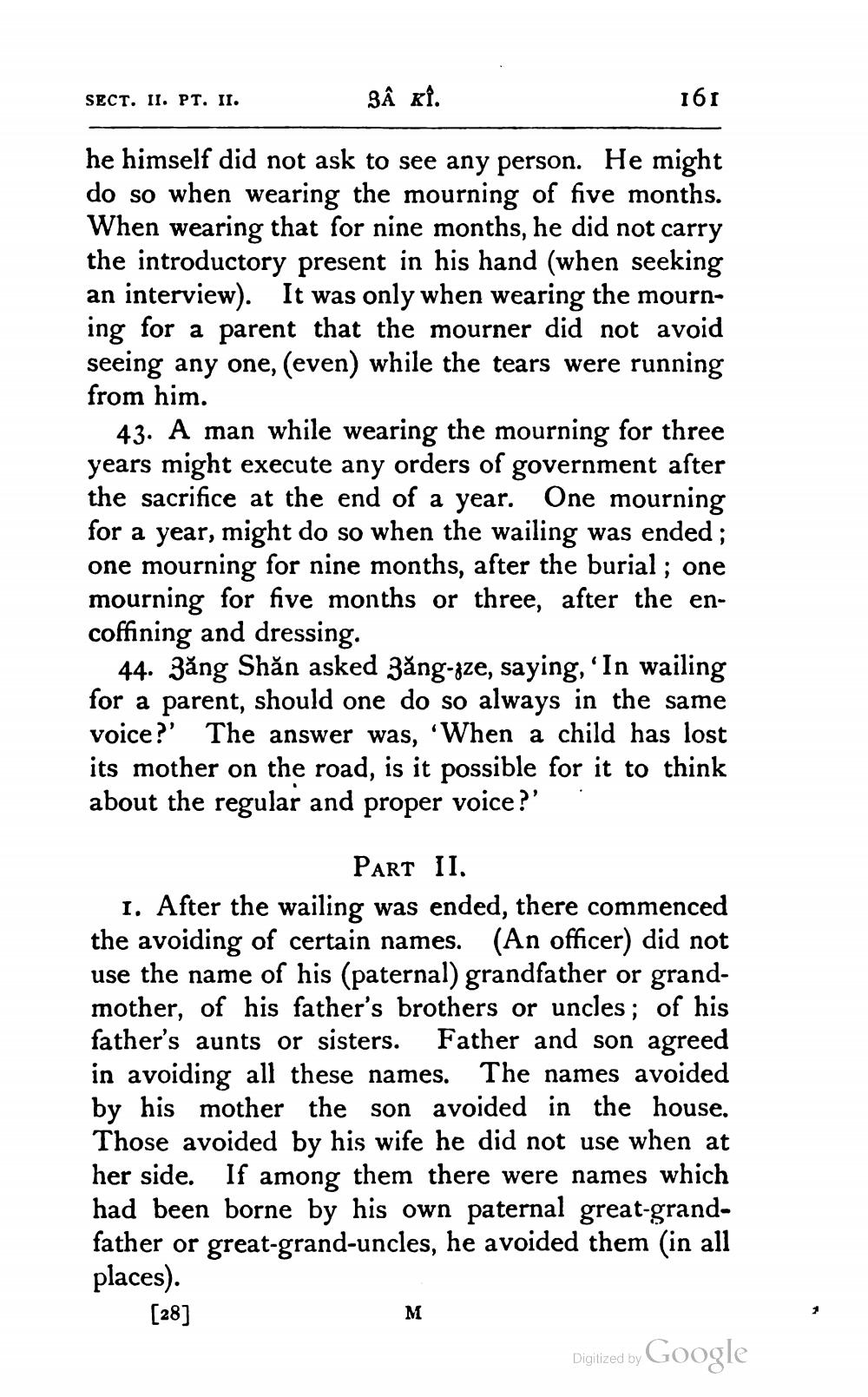________________
SECT. II. PT. II.
BÂ kt.
161
he himself did not ask to see any person. He might do so when wearing the mourning of five months. When wearing that for nine months, he did not carry the introductory present in his hand (when seeking an interview). It was only when wearing the mourning for a parent that the mourner did not avoid seeing any one, (even) while the tears were running from him.
43. A man while wearing the mourning for three years might execute any orders of government after the sacrifice at the end of a year. One mourning for a year, might do so when the wailing was ended; one mourning for nine months, after the burial ; one mourning for five months or three, after the encoffining and dressing.
44. 3ăng Shăn asked 3ăng-gze, saying, 'In wailing for a parent, should one do so always in the same voice?' The answer was, 'When a child has lost its mother on the road, is it possible for it to think about the regular and proper voice?'
Part II. 1. After the wailing was ended, there commenced the avoiding of certain names. (An officer) did not use the name of his (paternal) grandfather or grandmother, of his father's brothers or uncles; of his father's aunts or sisters. Father and son agreed in avoiding all these names. The names avoided by his mother the son avoided in the house. Those avoided by his wife he did not use when at her side. If among them there were names which had been borne by his own paternal great-grandfather or great-grand-uncles, he avoided them in all places). [28]
Digitized by Google




